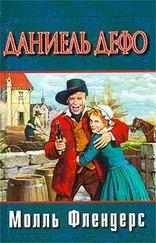Даниэль Дефо - History of the Plague in London
Здесь есть возможность читать онлайн «Даниэль Дефо - History of the Plague in London» весь текст электронной книги совершенно бесплатно (целиком полную версию без сокращений). В некоторых случаях можно слушать аудио, скачать через торрент в формате fb2 и присутствует краткое содержание. Год выпуска: 2014, Издательство: epubBooks Classics, Жанр: Историческая проза, на английском языке. Описание произведения, (предисловие) а так же отзывы посетителей доступны на портале библиотеки ЛибКат.
- Название:History of the Plague in London
- Автор:
- Издательство:epubBooks Classics
- Жанр:
- Год:2014
- ISBN:нет данных
- Рейтинг книги:4 / 5. Голосов: 1
-
Избранное:Добавить в избранное
- Отзывы:
-
Ваша оценка:
- 80
- 1
- 2
- 3
- 4
- 5
History of the Plague in London: краткое содержание, описание и аннотация
Предлагаем к чтению аннотацию, описание, краткое содержание или предисловие (зависит от того, что написал сам автор книги «History of the Plague in London»). Если вы не нашли необходимую информацию о книге — напишите в комментариях, мы постараемся отыскать её.
History of the Plague in London — читать онлайн бесплатно полную книгу (весь текст) целиком
Ниже представлен текст книги, разбитый по страницам. Система сохранения места последней прочитанной страницы, позволяет с удобством читать онлайн бесплатно книгу «History of the Plague in London», без необходимости каждый раз заново искать на чём Вы остановились. Поставьте закладку, и сможете в любой момент перейти на страницу, на которой закончили чтение.
Интервал:
Закладка:
This, in the first place, intimated to them that they would be sure to find the charity and kindness of the county, which they had found here where they were before, hardened and shut up against them; and that, on the other hand, they would be questioned wherever they came, and would be in danger of violence from others in like cases with themselves.
Upon all these considerations, John, their captain, in all their names, went back to their good friend and benefactor who had relieved them before, and, laying their case truly before him, humbly asked his advice; and he as kindly advised them to take up their old quarters again, or, if not, to remove but a little farther out of the road, and directed them to a proper place for them. And as they really wanted some house, rather than huts, to shelter them at that time of the year, it growing on towards Michaelmas, they found an old decayed house, which had been formerly some cottage or little habitation, but was so out of repair as [217] Supply "to be."
scarce habitable; and by consent of a farmer, to whose farm it belonged, they got leave to make what use of it they could.
The ingenious joiner, and all the rest by his directions, went to work with it, and in a very few days made it capable to shelter them all in case of bad weather; and in which there was an old chimney and an old oven, though both lying in ruins, yet they made them both fit for use; and, raising additions, sheds, and lean–to's [218] Buildings the rafters of which lean against or rest upon the outer wall of another building.
on every side, they soon made the house capable to hold them all.
They chiefly wanted boards to make window shutters, floors, doors, and several other things; but as the gentleman above favored them, and the country was by that means made easy with them, and, above all, that they were known to be all sound and in good health, everybody helped them with what they could spare.
Here they encamped for good and all, and resolved to remove no more. They saw plainly how terribly alarmed that country was everywhere at anybody that came from London, and that they should have no admittance anywhere but with the utmost difficulty; at least no friendly reception and assistance, as they had received here.
Now, although they received great assistance and encouragement from the country gentlemen, and from the people round about them, yet they were put to great straits; for the weather grew cold and wet in October and November, and they had not been used to so much hardship, so that they got cold in their limbs, and distempers, but never had the infection. And thus about December they came home to the city again.
I give this story thus at large, principally to give an account [219] Supply "of."
what became of the great numbers of people which immediately appeared in the city as soon as the sickness abated; for, as I have said, great numbers of those that were able, and had retreats in the country, fled to those retreats. So when it [220] The plague.
was increased to such a frightful extremity as I have related, the middling people [221] "Middling people," i.e., people of the middle class.
who had not friends fled to all parts of the country where they could get shelter, as well those that had money to relieve themselves as those that had not. Those that had money always fled farthest, because they were able to subsist themselves; but those who were empty suffered, as I have said, great hardships, and were often driven by necessity to relieve their wants at the expense of the country. By that means the country was made very uneasy at them, and sometimes took them up, though even then they scarce knew what to do with them, and were always very backward to punish them; but often, too, they forced them from place to place, till they were obliged to come back again to London.
I have, since my knowing this story of John and his brother, inquired, and found that there were a great many of the poor disconsolate people, as above, fled into the country every way; and some of them got little sheds and barns and outhouses to live in, where they could obtain so much kindness of the country, and especially where they had any, the least satisfactory account to give of themselves, and particularly that they did not come out of London too late. But others, and that in great numbers, built themselves little huts and retreats in the fields and woods, and lived like hermits in holes and caves, or any place they could find, and where, we may be sure, they suffered great extremities, such that many of them were obliged to come back again, whatever the danger was. And so those little huts were often found empty, and the country people supposed the inhabitants lay dead in them of the plague, and would not go near them for fear, no, not in a great while; nor is it unlikely but that some of the unhappy wanderers might die so all alone, even sometimes for want of help, as particularly in one tent or hut was found a man dead, and on the gate of a field just by was cut with his knife, in uneven letters, the following words, by which it may be supposed the other man escaped, or that, one dying first, the other buried him as well as he could:—
O m I s E r Y!
We Bo T H Sh a L L D y E,
W o E, W o E
I have given an account already of what I found to have been the case down the river among the seafaring men, how the ships lay in the "offing," as it is called, in rows or lines, astern of one another, quite down from the Pool as far as I could see. I have been told that they lay in the same manner quite down the river as low as Gravesend, [222] At the mouth of the Thames.
and some far beyond, even everywhere, or in every place where they could ride with safety as to wind and weather. Nor did I ever hear that the plague reached to any of the people on board those ships, except such as lay up in the Pool, or as high as Deptford Reach, although the people went frequently on shore to the country towns and villages, and farmers' houses, to buy fresh provisions (fowls, pigs, calves, and the like) for their supply.
Likewise I found that the watermen on the river above the bridge found means to convey themselves away up the river as far as they could go; and that they had, many of them, their whole families in their boats, covered with tilts [223] Awnings.
and bales, as they call them, and furnished with straw within for their lodging; and that they lay thus all along by the shore in the marshes, some of them setting up little tents with their sails, and so lying under them on shore in the day, and going into their boats at night. And in this manner, as I have heard, the riversides were lined with boats and people as long as they had anything to subsist on, or could get anything of the country; and indeed the country people, as well gentlemen as others, on these and all other occasions, were very forward to relieve them, but they were by no means willing to receive them into their towns and houses, and for that we cannot blame them.
There was one unhappy citizen, within my knowledge, who had been visited in a dreadful manner, so that his wife and all his children were dead, and himself and two servants only left, with an elderly woman, a near relation, who had nursed those that were dead as well as she could. This disconsolate man goes to a village near the town, though not within the bills of mortality, and, finding an empty house there, inquires out the owner, and took the house. After a few days he got a cart, and loaded it with goods, and carries them down to the house. The people of the village opposed his driving the cart along, but, with some arguings and some force, the men that drove the cart along got through the street up to the door of the house. There the constable resisted them again, and would not let them be brought in. The man caused the goods to be unloaded and laid at the door, and sent the cart away, upon which they carried the man before a justice of peace; that is to say, they commanded him to go, which he did. The justice ordered him to cause the cart to fetch away the goods again, which he refused to do; upon which the justice ordered the constable to pursue the carters and fetch them back, and make them reload the goods and carry them away, or to set them in the stocks [224] Two heavy timbers placed horizontally, the upper one of which can be raised. When lowered, it is held in place by a padlock. Notches in the timbers form holes, through which the prisoner's legs are thrust, and held securely.
till they [225] The constables.
came for further orders; and if they could not find them, [226] The carters.
and the man would not consent to take them [227] The goods.
away, they should cause them to be drawn with hooks from the house door, and burned in the street. The poor distressed man, upon this, fetched the goods again, but with grievous cries and lamentations at the hardship of his case. But there was no remedy: self–preservation obliged the people to those severities which they would not otherwise have been concerned in. Whether this poor man lived or died, I cannot tell, but it was reported that he had the plague upon him at that time, and perhaps the people might report that to justify their usage of him; but it was not unlikely that either he or his goods, or both, were dangerous, when his whole family had been dead of the distemper so little a while before.
Интервал:
Закладка:
Похожие книги на «History of the Plague in London»
Представляем Вашему вниманию похожие книги на «History of the Plague in London» списком для выбора. Мы отобрали схожую по названию и смыслу литературу в надежде предоставить читателям больше вариантов отыскать новые, интересные, ещё непрочитанные произведения.
Обсуждение, отзывы о книге «History of the Plague in London» и просто собственные мнения читателей. Оставьте ваши комментарии, напишите, что Вы думаете о произведении, его смысле или главных героях. Укажите что конкретно понравилось, а что нет, и почему Вы так считаете.












